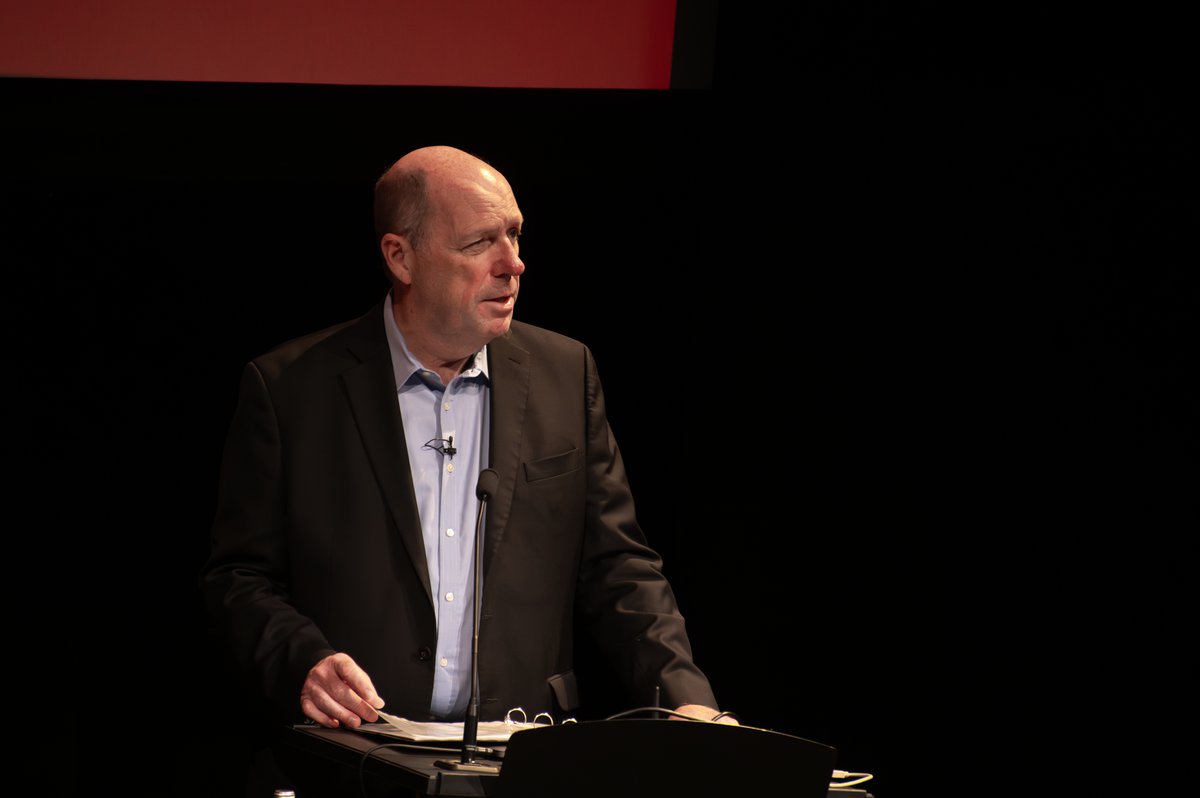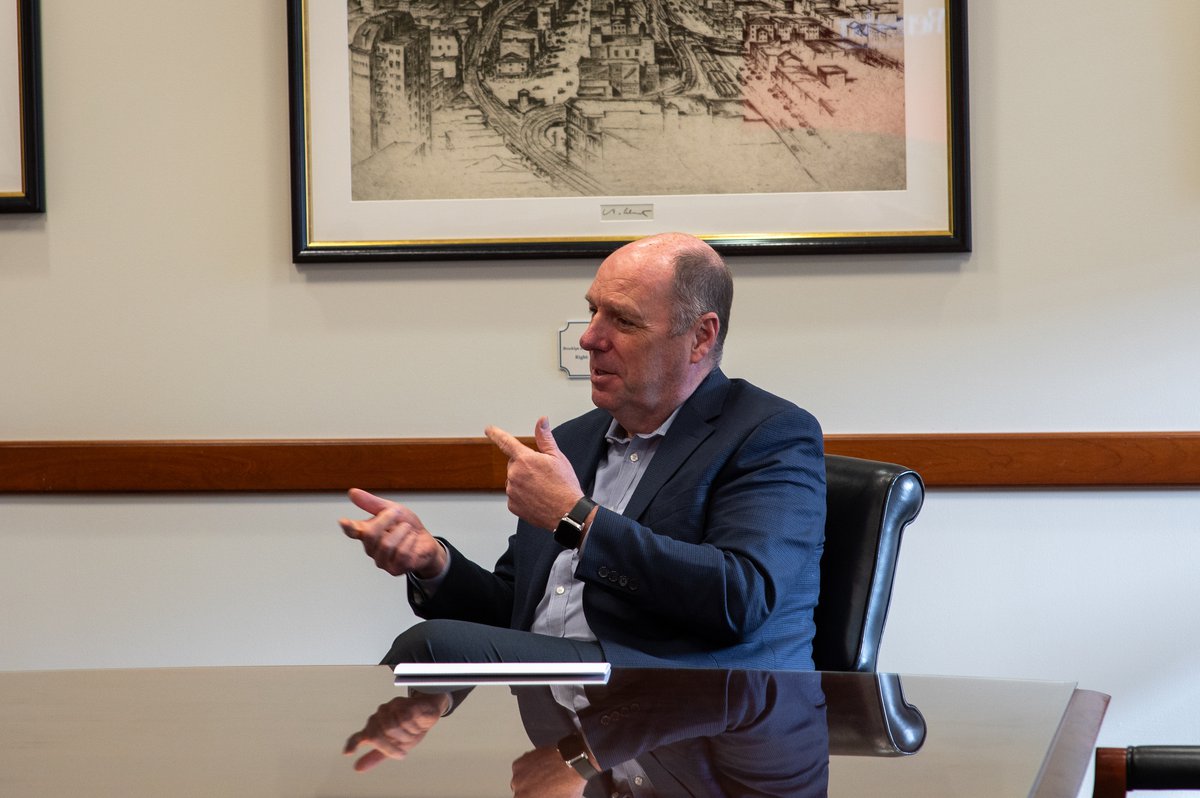Best of times, worst of times: President Schmidt seeks to reassure during a time of upheaval

Last Wednesday, President Martin A. Schmidt ’81 hosted a town meeting at EMPAC. This was his seventh town meeting since becoming president in 2022. His last town meeting was in March.
Federal Government
President Schmidt began the meeting quoting Charles Dickens, saying “it was the best of times, it was the worst of times,” adding that higher education was in a time of upheaval. In regards to research funding, the Trump Administration’s FY26 budget request calls for major budget reductions for the National Institutes of Health and National Science Foundation. Both agencies provide billions in research funding to institutions across the country, including Rensselaer. Schmidt stated that even though the White House wants cuts, he hopes Congress will push back. In early September, House Republicans followed the Senate and submitted a bill that gives the NIH a near identical budget to this year’s.
The president also identified concerns over a 15 percent cap on indirect costs for research grants. President Schmidt explained indirect costs in an interview with The Poly back in March, saying that they are used to fund building utility fees, journal subscriptions, and administrative costs. Direct costs fund research assistant salaries and lab equipment. At the time, Schmidt stated that RPI’s current indirect cost rate is about 23 percent. In August, President Donald Trump signed an executive order that prioritizes institutions with lower indirect cost rates when all other factors are equal. During the town meeting, President Schmidt stated that this could disadvantage RPI because public universities generally have lower indirect cost rates.
Additionally, at the beginning of the year, RPI saw a sharp decrease in the amount of federal research grant funding it was receiving. According to President Schmidt, RPI usually receives roughly $16 million in new grants every quarter. For Q1 2025, the Institute received just $6 million, or a 62.5 percent decrease. New grants did pick up in Q2 with RPI receiving around $12 million and Q3 at around $14.8 million so far. Despite the improvement, a prolonged government shutdown could dampen the amount of new grants RPI receives.
President Schmidt also spoke on the Centers for Disease Control’s contract with RPI to investigate a relation between vaccines and autism. Schmidt reiterated what he said in a mass email sent last Monday. “The current scientific consensus is clear. To date, the vast majority of studies have not found an association, but science never stops. If there is new data and methods to explore this question and an accomplished autism researcher in Professor Hahn, I don’t believe we should block this research and certainly we must publish the findings when complete,” he said.
On the immigration front, President Schmidt said that to the best of RPI's knowledge, no one has been directly impacted by ICE. He also added that some international students were afraid to go back for family occasions in fear of not being allowed back into the US. Additionally, President Schmidt mentioned that there was a pause in the acceptance of new student visas leading up to the start of the school year due to new vetting procedures. Although he did not say what these new procedures were, he was most likely referring to new requirements that mandate student visa applicants submit their social media information to be screened. These screenings would “identify applicants who bear hostile attitudes towards our citizens, culture, government, institutions, or founding principles; who advocate for, aid, or support designated terrorists and other threats to U.S. national security; or who perpetrate unlawful antisemitic harassment or violence,” according to a POLITICO report from June.
Financials
Last year, RPI saw a much smaller first-year class than anticipated. It initially aimed to see 1,650 new first-year students enroll but only saw 1,319. This year, the Institute lowered its goal to 1,350 and exceeded it by enrolling 1,415. The yield rate, or percent of accepted students that enroll, rose slightly from 12 percent to 14 percent, but is still lower than the Class of 2027’s yield rate of 16 percent.
The lower enrollment last year resulted in RPI taking a roughly $50.5 million hit to its revenue. Despite the revenue loss, the Board of Trustees also devoted $50 million in additional investments during FY25. Moving forward, President Schmidt stated RPI needs to slow its investments. RPI’s endowment fared much better, returning 12.5 percent during FY25 and ending with a market value of $1.02 billion. RPI has also seen an increase in donations from alumni. During FY25, RPI raised roughly $73 million up from $43 million in FY24. The goal for FY26, which ends on June 30, 2026, is to raise between $80-100 million.
A livestream of the Town Meeting can be found here.

 Interview
Interview